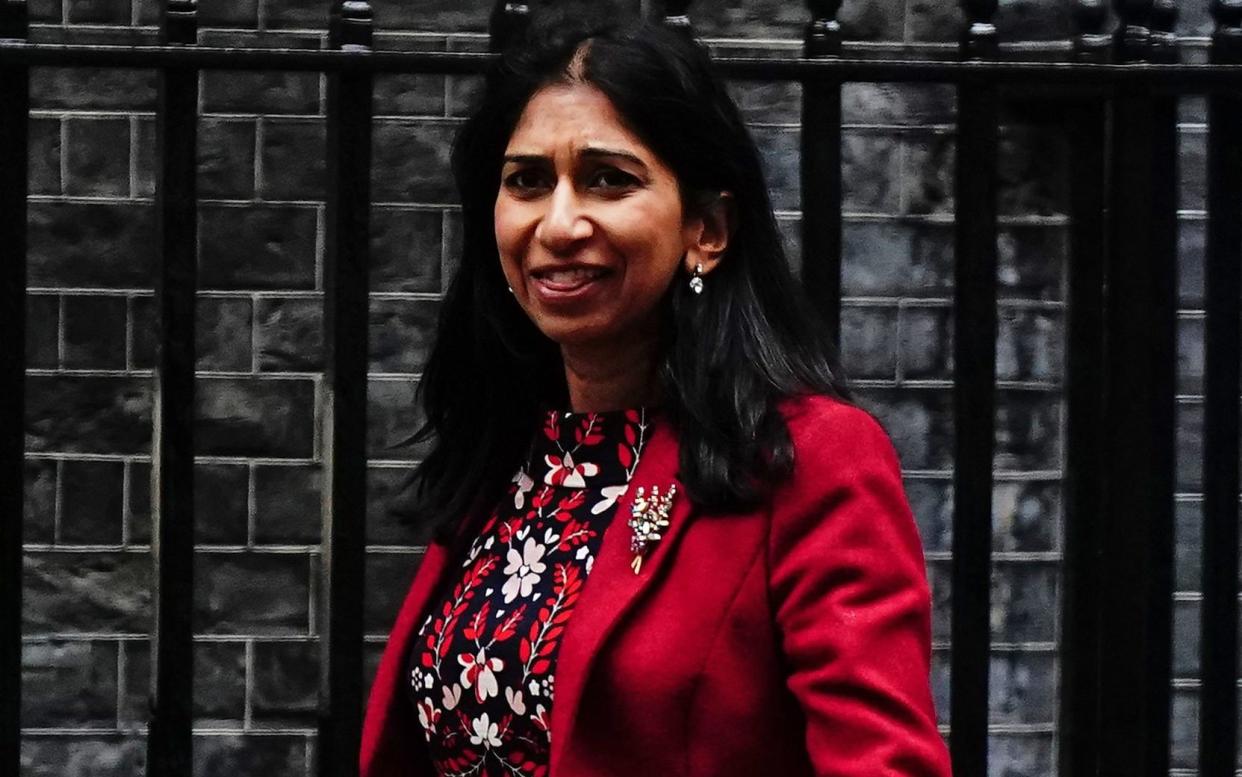Fight crime and forget 'diversity and inclusion' schemes, Suella Braverman tells police

The Home Secretary has told police chiefs that the public expect officers to visit the scene of every burglary in a drive to get back to basics.
In her first major statement since taking up the post, Suella Braverman said police needed to stop wasting time on “symbolic gestures” and initiatives on diversity and instead focus on “common sense policing”.
In a letter to all 43 chief constables and police commissioners in England and Wales, she said she had been “dismayed by the perceived deterioration of public confidence” in police in the past few years following “too many” high-profile incidents, such as the murder of Sarah Everard, that had “shattered public trust” in communities across the UK.
She said there not only had to be a change in culture and standards but also a drive to bring down neighbourhood crime and anti-social behaviour.
Ms Braverman made it clear that this meant a big improvement in the charging rates not only for rape and sexual offences but also for neighbourhood crimes such as burglary.
Fewer than seven percent of domestic burglaries end in the offender being charged, while for theft it is four per cent and only one per cent for car theft.
“It is absolutely vital that trust is restored, and to address this we must have visible and responsive policing,” she wrote. “It must deliver the public’s priorities, and it must treat victims with the respect they deserve.
“The public have a right to expect that the police get the basics right: driving down anti-social behaviour and neighbourhood crime, which can so easily rip through our communities. To put it simply, the public want to know that an officer will visit them after a crime such as burglary.
“They want to feel safe in their cities, towns and villages. This is not just about doing your day job well – it is also about victims needing to feel supported and not ignored.
“Unfortunately, there is a perception that the police have had to spend too much time on symbolic gestures, than actually fighting criminals. This must change. Initiatives on diversity and inclusion should not take precedence over common sense policing.”
Ms Braverman, a former attorney general who took over from Priti Patel as Home Secretary, reaffirmed Liz Truss’s demand for police to cut homicide, serious violence and neighbourhood crime by 20 per cent.
While overall crime had fallen over the last decade, she said there needed to be a “renewed focus” on tackling neighbourhood crime and antisocial behaviour. “Drugs, vehicle theft, vandalism and graffiti are not being treated seriously enough,” she added.
Ms Braverman said she was “deeply concerned” by the failure to convert more offences under investigation into charges and subsequent prosecutions.
“I want to investigate how we can improve charge rates which have dropped for many crimes, but none more so than for rape and sexual offences against women and children,” she said.
Charging rates for crimes such as burglary and theft have halved in six years. This summer, The Telegraph revealed that police have failed to solve a single burglary in neighbourhoods covering nearly half the country over the past three years.
Charges rates for rape are even lower, having fallen to just one in 70 offences being solved. Ms Braverman urged more forces to take up Operation Soteria, under which officers focus on investigating rape suspects’ patterns of behaviour rather than testing the victim’s credibility. “We need more police referrals and more CPS charges,” she said.

 Yahoo News
Yahoo News 
